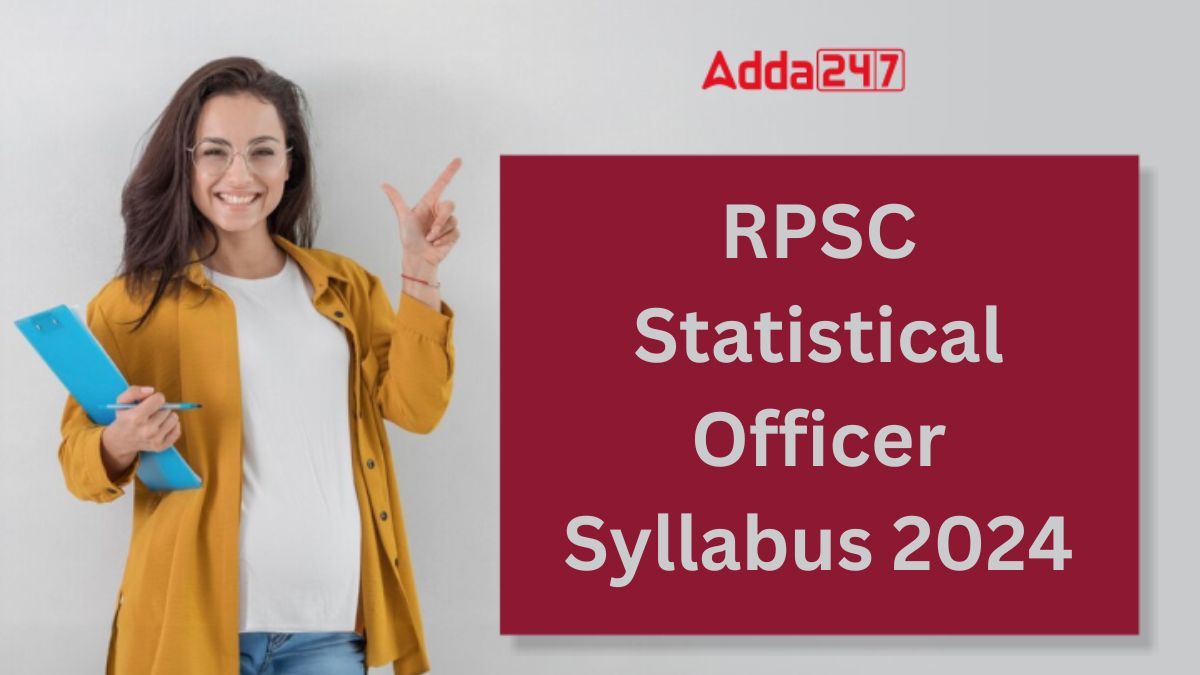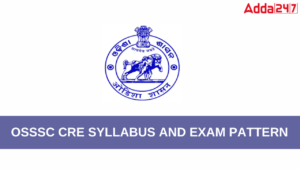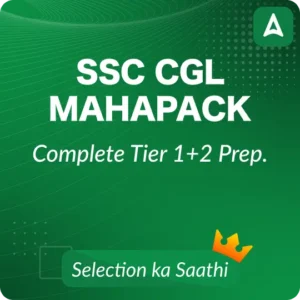The RPSC Statistical Officer exam is an important chance for those looking to work in statistics and data analysis in Rajasthan. To do well, candidates need to understand the syllabus and exam pattern for 2024. The RPSC has listed topics that include statistics, mathematics, economics, and data interpretation. The exam will have objective-type questions to test candidates’ knowledge and analytical skills. Knowing the syllabus and exam structure will help candidates create a good study plan and improve their chances of success. This guide provides detailed information on the syllabus, exam pattern, and preparation tips.
RPSC Statistical Officer Syllabus 2024
The RPSC Statistical Officer Syllabus and Exam Pattern are now available and candidates should download this information and study it carefully. The selection process includes three steps: a Screening Test, a Personal Interview, and Document Verification. The exam has a total of 100 marks, with each question worth one mark, but details about negative marking are not yet provided.
The final selection will be based on how well candidates do in both the screening test and the interview, along with their academic scores. This article will provide all the important details and guidance for candidates preparing for the RPSC Statistical Officer Exam 2024.
RPSC Statistical Officer Exam Pattern
The RPSC Statistical Officer Selection Process includes three stages: the Screening Test, the Personal Interview, and the consideration of Academic Merit. Here’s a breakdown of the exam pattern:
| Stage | Questions | Marks | Weightage |
|---|---|---|---|
| Screening Test | 40 | 40 | 40% |
| Academic Merit | – | – | 20% |
| Personal Interview | – | – | 40% |
| Total | 100 | 100 | 100% |
In the Screening Test, candidates will answer 40 questions for a total of 40 marks, making up 40% of the overall score. Academic merit contributes 20%, while the Personal Interview accounts for 40% of the final selection.
RPSC Statistical Officer Detailed Syllabus
The RPSC Statistical Officer Syllabus for the Screening Test is designed to help candidates understand key concepts and prepare effectively for the examination. Below are the main subjects and topics covered:
| Subject | Topics |
|---|---|
| Descriptive Statistics | Types of Data, Collection, Classification, Tabulation and Diagrammatic Presentation of Data, Measures of Central Tendency, Dispersion, Moments, Skewness and Kurtosis, Correlation and Regression, Karl Pearson and Rank Correlation Coefficients, Multiple and Partial Correlation, Linear Regression, Method of Least Squares |
| Probability | Classical and Axiomatic Approaches of Probability, Conditional Probability, Bayes Theorem, Simple Problems on Probability, Random Variable, Mathematical Expectation with Applications, Chebyshev’s Inequality |
| Probability Distributions | Uniform, Binomial, Negative Binomial, Poisson, Exponential, Rectangular, Normal, Gamma, Cauchy, Beta Distributions with Properties and Applications, Central Limit Theorem |
| Sampling Distributions | Chi-Square, T and F Distributions and Their Applications |
| Multivariate Analysis | Multivariate Normal Distribution, Hotelling’s T² Distribution, Discriminant, Principal Component and Factor Analysis, Multiple Regression Analysis, Multicollinearity, Wishart’s Distribution and Its Properties |
| Theory of Estimation | Point and Interval Estimation, Properties of Estimator, Methods of Estimation – Least Squares and Maximum Likelihood Estimates, Cramer-Rao Inequality, Confidence Intervals and Confidence Limits |
| Testing of Hypothesis | Concept of Hypothesis, Types of Error in Testing, Critical Region and Level of Significance, p-values, Neyman-Pearson Lemma, One and Two-Tailed Tests Based on Small and Large Samples |
| Non-Parametric Tests | Run Test, Sign Test, Median Test, Kolmogorov-Smirnov One and Two Sample Tests |
| Design of Sample Survey | Sampling Unit, Sampling Frame, Sampling Fraction, Sampling with and without Replacement, Population Parameter and Sample Estimator, Efficiency, Accuracy and Precision, Sampling and Non-Sampling Errors, Simple Random Sampling, Probability Proportional to Size with Replacement, Stratified Random Sampling, Systematic Sampling, Cluster Sampling, Multistage Sampling, Ratio and Regression Methods of Estimation |
| Design of Experiments | Analysis of Variance for One-Way and Two-Way Classified Data, Transformation of Data, Uniformity Trials, Principles of Design of Experiments, Completely Randomized Design, Randomized Block Design, Latin Square Design, Missing Plot Techniques, Factorial Experiments, Analysis of Covariance |
| Time Series Analysis | Components, Measurements of Trend, Seasonal, Cyclical and Irregular Variations, Autocorrelation, Auto Regression, Periodogram |
RPSC Statistical Officer Exam 2024 – Recommended Books for Preparation
To prepare effectively for the RPSC Statistical Officer Exam, candidates should use reliable study materials. Here’s a list of recommended books that cover essential topics from the syllabus:
| Book | Author/Publisher | Description |
|---|---|---|
| RPSC Statistical Officer Prelims Exam Books | V.V.K. Subburaj | Offers a complete insight into all sections relevant to the exam. |
| How to Crack Test of Reasoning: In All Competitive Exams | Arihant | Ideal for practicing a variety of reasoning questions. |
| Verbal and Nonverbal Reasoning | RS Agarwal | Contains practice questions from various reasoning topics; widely used by students. |
| Data Analysis & Interpretation | Disha Publications | Useful for practicing MCQs and previous year question papers. |
| Corrective English | AK Singh | Focuses on grammar concepts and includes grammar questions. |
| How to Prepare for Quantitative Aptitude | Arun Sharma | Covers various topics in Quantitative Aptitude with practice questions. |



 Punjab Patwari Syllabus 2026, Check Exam...
Punjab Patwari Syllabus 2026, Check Exam...
 RRB Section Controller Syllabus And New ...
RRB Section Controller Syllabus And New ...
 OSSSC CRE Syllabus 2026 Prelims and Main...
OSSSC CRE Syllabus 2026 Prelims and Main...




 Adda247 Job portal has complete information about all Sarkari Jobs and Naukri Alerts, its latest recruitment notifications, from all state and national level jobs and their updates.
Adda247 Job portal has complete information about all Sarkari Jobs and Naukri Alerts, its latest recruitment notifications, from all state and national level jobs and their updates.



